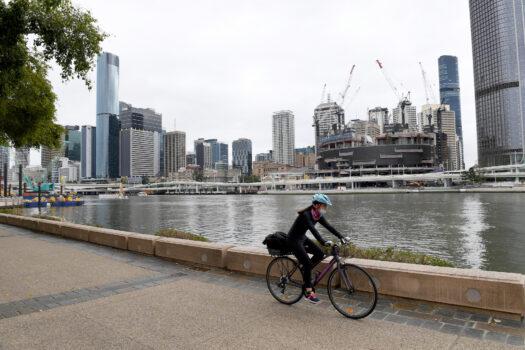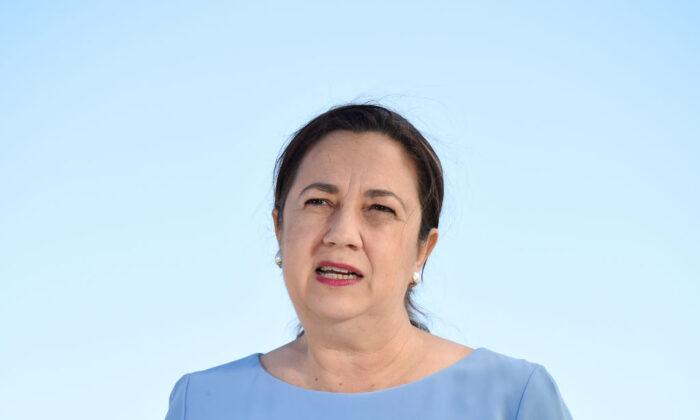The Queensland government has racked up AU$5.2 million of COVID-19 related fines, with a portion of individuals or businesses facing enforcement measures such as suspension of their driver’s licence and garnishing of their wages.
According to a Queensland Treasury statement issued to The Epoch Times, as of Sept. 30, the government has issued 3,046 infringements to 2,755 individuals or businesses.
“Approximately 56.4 percent of COVID-related fines have either been paid in full or are under a payment plan,” a spokesperson from the State Penalties Enforcement Registry said.
“A further 18.4 percent are under active enforcement, which may include garnishing bank accounts or wages, registering charges over property, or suspending driver licences.”
The remaining 25.2 percent are within the time-to-pay period or are under investigation.
“People really have been exposed to the worst excesses of government that one could imagine and overreach by various agencies, and I suppose that some people have paid the price,” Campbell Newman, former Queensland premier and now-Liberal Democrat candidate for the Australian Senate, told The Epoch Times.

“Within those numbers, there are going to be people who probably have done the wrong thing in a very clear way, but sadly I’m confident there are many people who’ve been fined for what were silly rules in the first place,” he said.
Like many Australian jurisdictions, Queensland has, since the beginning of the pandemic, relied heavily on a tough suppression strategy to deal with outbreaks of COVID-19.
Similar trends have also emerged in other jurisdictions, helping incumbent leaders in the Northern Territory, Western Australia, and Tasmania to electoral success.
The narrative, however, has changed in the second half of 2021 due to the Delta variant, with governments now shifting their focus from using the suppression strategy to incentivising higher vaccination rates.
This has seen governments roll out “reopening plans” that involve returning “freedoms” to Australians once they are fully jabbed.
In early November, the Queensland government announced that from Dec. 17—or once 80 percent of the local population is vaccinated—a raft of new restrictions would kick in for unvaccinated residents.
However, no restrictions are currently in place with residents—jabbed or un-jabbed—allowed to mingle freely.
The move has frustrated major business owners with Heath Goddard, owner of national retail chain Pillow Talk, vowing not to implement any restrictions on customers deemed to be unvaccinated.
“Since when do we have totalitarian directions in Australia? We’ve got them now. We’re worse than (communist) Czechoslovakia.”





